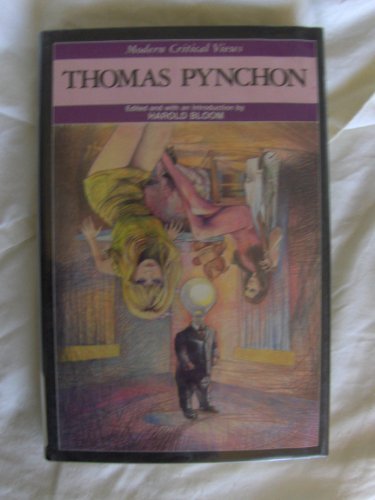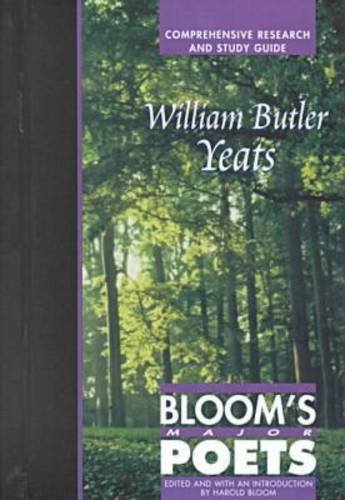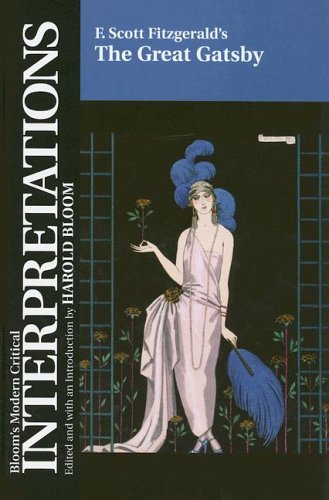-
Bloom's Reviews: Comprehensive Research Study Guide/Arthur Miller's Death of a Salesman
Harold Bloom
Paperback (Chelsea House Pub, Oct. 1, 1998)In the spring of 1948, Arthur Miller retreated to a log cabin in Connecticut with the first two lines of a new play already fixed in his mind. He emerged six weeks later with the final script of "Death of a Salesman" - a painful examination of American life and consumerism. Opening on Broadway the following year, Miller's extraordinary masterpiece changed the course of modern theatre. In creating Willy Loman, his destructively insecure anti-hero, Miller himself defined his aim as being 'to set forth what happens when a man does not have a grip on the forces of life.'
-
Shakespeare's Julius Caesar
Harold Bloom
Paperback (Riverhead Books, April 5, 2005)The exciting new series that began in Fall 2004 with Macbeth, A Midsummer Night's Dream, and Henry IV continues... "Shakespeare's Julius Caesar is an immensely sympathetic character, benign yet dangerous. He is, of course, self-centered, and always conscious of being Caesar, perhaps even sensing his deification in advance." - Harold Bloom Each edition in the Harold Bloom Shakespeare series will include the full text of the play, with editorial revisions and commentary by Harold Bloom.
-
Toni Morrison's the Bluest Eye
Harold Bloom
Hardcover (Chelsea House Pub, Jan. 1, 1999)A critical guide to the work features the writings of Susan Willis, Michael Awkward, Donald B. Gibson, and Dorthea Drummond Mbalia
-
Thomas Pynchon
Harold Bloom
Library Binding (Chelsea House Pub, Dec. 1, 1986)A collection of critical essays on Pynchon and his works. Also includes a chronology of events in the author's life.
-
William Butler Yeats
Harold Bloom
Library Binding (Chelsea House Pub, March 1, 2001)Book by Q
Q
-
Thomas Mann
Harold Bloom
Paperback (Infobase Publishing (Facts on File/Chelsea House), Aug. 1, 1986)Book by
-
William Golding's Lord of the Flies
Harold Bloom
Library Binding (Chelsea House Pub, June 1, 1996)Includes a brief biography of William Golding, thematic and structural analysis of the work, critical views, and an index of themes and ideas.
-
The Epic
Harold Bloom
language (Chelsea House Pub, Dec. 1, 2004)A collection of critical writings about some of the greatest epic works in the Western literary tradition, including "The Iliad," "The Aeneid," "Beowulf," "The Divine Comedy," "Paradise Lost," and James Joyce's "Ulysses."
-
Essayists and Prophets
Harold Bloom
language (Chelsea House Pub, Dec. 1, 2004)A collection of critical writings about some of the greatest authors of essays in Western history, including Jean-Jacques Rousseau, Henry David Thoreau, Aldous Huxley, and Albert Camus.
-
Toni Morrison's Beloved
Harold Bloom
(Chelsea House Pub, Sept. 1, 2003)A critical overview of the work features such contributors as Bernard W. Bell, Trudier Harris, Nancy Jesser, and Susan Corey.
-
F. Scott Fitzgerald's the Great Gatsby
Harold Bloom
Hardcover (Chelsea House Pub, Sept. 1, 2003)A critical review of the work features the contributions of Joseph B. Wagner, Ronald Berman, Elizabeth Preston, and other scholars, discussing the themes and characters of the novel.
-
Langston Hughes
Harold Bloom
eBook (Chelsea House Pub, Nov. 1, 2007)Poet, playwright, novelist, and public figure, Langston Hughes is regarded as a cultural hero who made his mark during the Harlem Renaissance. A prolific author, Hughes focused his writing on discrimination in and disillusionment with American society. His most noted works include the novel Not Without Laughter, the poem "The Negro Speaks of Rivers," and the essay The Negro Artist and the Racial Mountain, to name just a few. Langston Hughes, New Edition features compelling critical essays that create a well-rounded portrait of this great American writer. An introductory essay by Harold Bloom and a chronology tracing the major events in Hughes's life add further depth to this newly updated study tool.